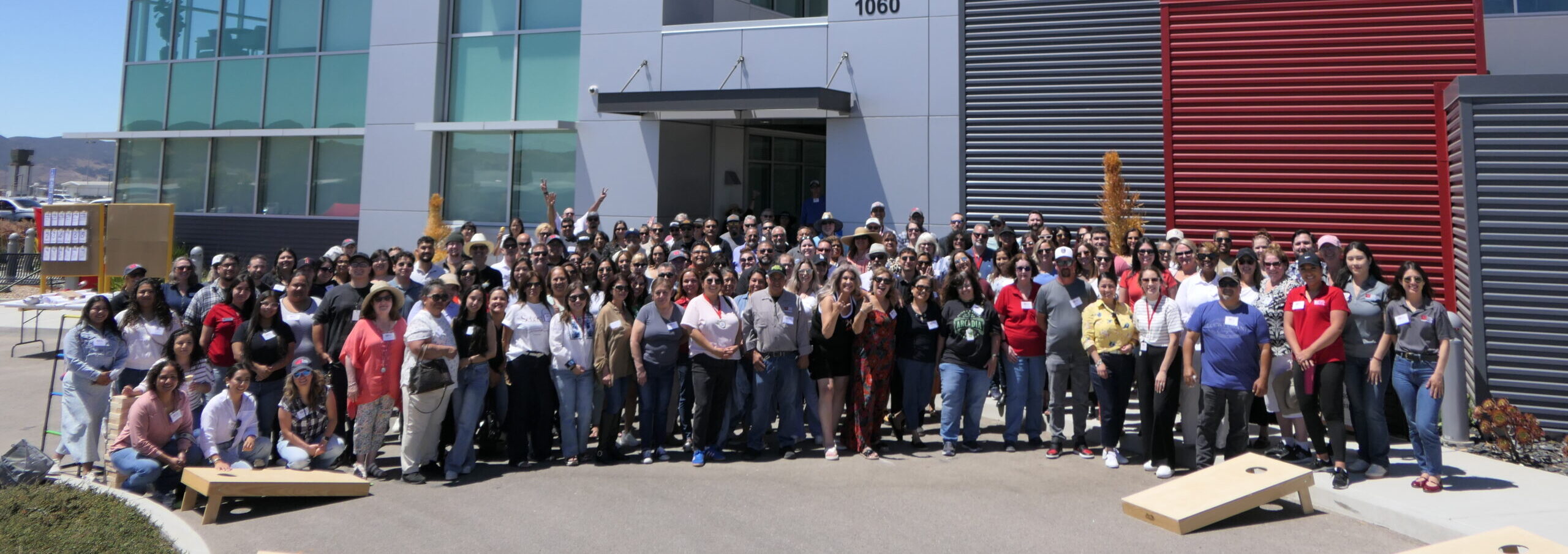Inclusion, Diversity, Equity & Action
 In 2019, People’s Self-Help Housing formed the IDEA (Inclusion, Diversity, Equity, and Action) Commission, a staff led effort to ensure advancements, promote opportunities and hear all voices related to equity, diversity and inclusion that affect our residents and team members. We invite you to learn more:
In 2019, People’s Self-Help Housing formed the IDEA (Inclusion, Diversity, Equity, and Action) Commission, a staff led effort to ensure advancements, promote opportunities and hear all voices related to equity, diversity and inclusion that affect our residents and team members. We invite you to learn more:
Who We Are • IDEA Statement • Equity Lens • Demographic Statement • Land Acknowledgement
Who We Are:
The IDEA Commission is a staff-led effort to ensure that equity work is a constant in what we do. We are a diverse group of individuals from different levels and departments within the organization, holding a strong commitment to making equity, diversity, inclusion, and belonging part of our everyday lives.
IDEA Statement:
PSHH is the longest-serving affordable housing provider on the Central Coast of California, and our organization has, in alignment with its mission, the responsibility to positively impact the lives of our residents and team members through the advancement of equity, diversity, and inclusion work, which currently includes, but is not limited to:
- Creating and providing affordable and fair housing as the baseline of our equity work. Achieving equity is the foundation for all housing and community development.
- Building strong teams by hiring, retaining, and promoting employees. We also use continuous evaluations and improvement in our organization to ensure accountability and wellbeing of all our employees and the residents we serve.
- Promoting decision-making practices founded on diversity, equity, and inclusion. PSHH will guide its decision-making processes with our Equity Lens, a tool for long-term strategic planning.
- Providing continues diversity, equity, and inclusion education to all team members to build brave spaces and encourage everyone to use the tools of critical thinking and freedom of speech.
Equity Lens:
The Equity Lens is a tool that provides internal reflection and accountability in the PSHH decision-making processes. As we continue to build opportunities and better futures for our employees, residents, and community members, we need to stop and ask ourselves when and how our actions are, or are not, contributing to our mission and values.
The following questions are meant to help guide this practice. We invite team members at all levels of the organization to stop, reflect, evaluate, and ask:
- Are we accounting for communities most affected by inequities?
- Are all groups represented and empowered to provide input in decision-making processes? If not, how can we get their input and ensure that this does not happen again?
- How will the proposed policy, practice, or decision advance diversity, equity, and inclusion at PSHH? If not, how can we include one of these areas before advancing further?
- How will the proposed policy, practice, or decision affect each burdened group within and outside the organization?
- Is the implementation of this policy, practice, or decision harmful to any groups? If so, please reassess to minimize impact.
Demographic Statement:
As part of our commitment to transparency and accountability, we track and publish our organization’s demographic data quarterly. Our goal is to create an organization where everyone feels included and where inequities are not a barrier to success.
As of January 1, 2026, our demographic profile is as follows:
PSHH Team Members:
Land Acknowledgement:
Context
Land acknowledgements are an Indigenous practice of territorial and tribal recognition used, first and foremost, inside Indigenous communities. Other sectors of society have chosen to also include and use land acknowledgments to recognize and show appreciation for Indigenous Peoples and their lands. Our land acknowledgement was staff created and revised by Chumash community members.
As an organization that develops and provides affordable housing, we use this land acknowledgement to remind ourselves, and those we serve, that we are guests of unceded territories.
statement:
With sincere gratitude, we humbly acknowledge the Indigenous Peoples and unceded territories that our organization now occupies. We recognize the YTT Northern Chumash, Santa Ynez Band of Chumash, Barbeño/Ventureño Band of Mission Indians, Cruzeño Chumash, and Salinan elders, current and future generations as the protectors of these lands.
We honor and respect the sacred connection between Indigenous Peoples and the land that they have stewarded for generations. Our work commits us to advocate for justice and equity on behalf of our residents by building housing opportunities for those individuals and groups most affected by housing inequities.
This acknowledgement is an important step in our accountability, learning, and insurance that our properties are just and equitable places to live. This is also a demonstration of our appreciation and respect for the Indigenous Peoples, their lands, and their coastal territories.
Resources
If you want to learn more, please visit the resources below:
• Native Land Map
• YTT Northern Chumash Tribe
• Santa Barbara Museum of Natural History
• Barbeño/Ventureño Band of Mission Indians
• Chumash Indian Museum
• Salinan Tribe of Monterey and San Luis Obispo Counties
• Proposed Chumash Heritage Site Sanctuary
• Santa Ynez Band of Chumash
Note on naming conventions: Indigenous Peoples suffered from European displacement and imposition; thus, many Indigenous tribal names in California adopted the names of Spanish Missions. We understand naming conventions of tribes and nations change throughout time. As Indigenous Peoples recover their histories and languages, we will update the names accordingly.

